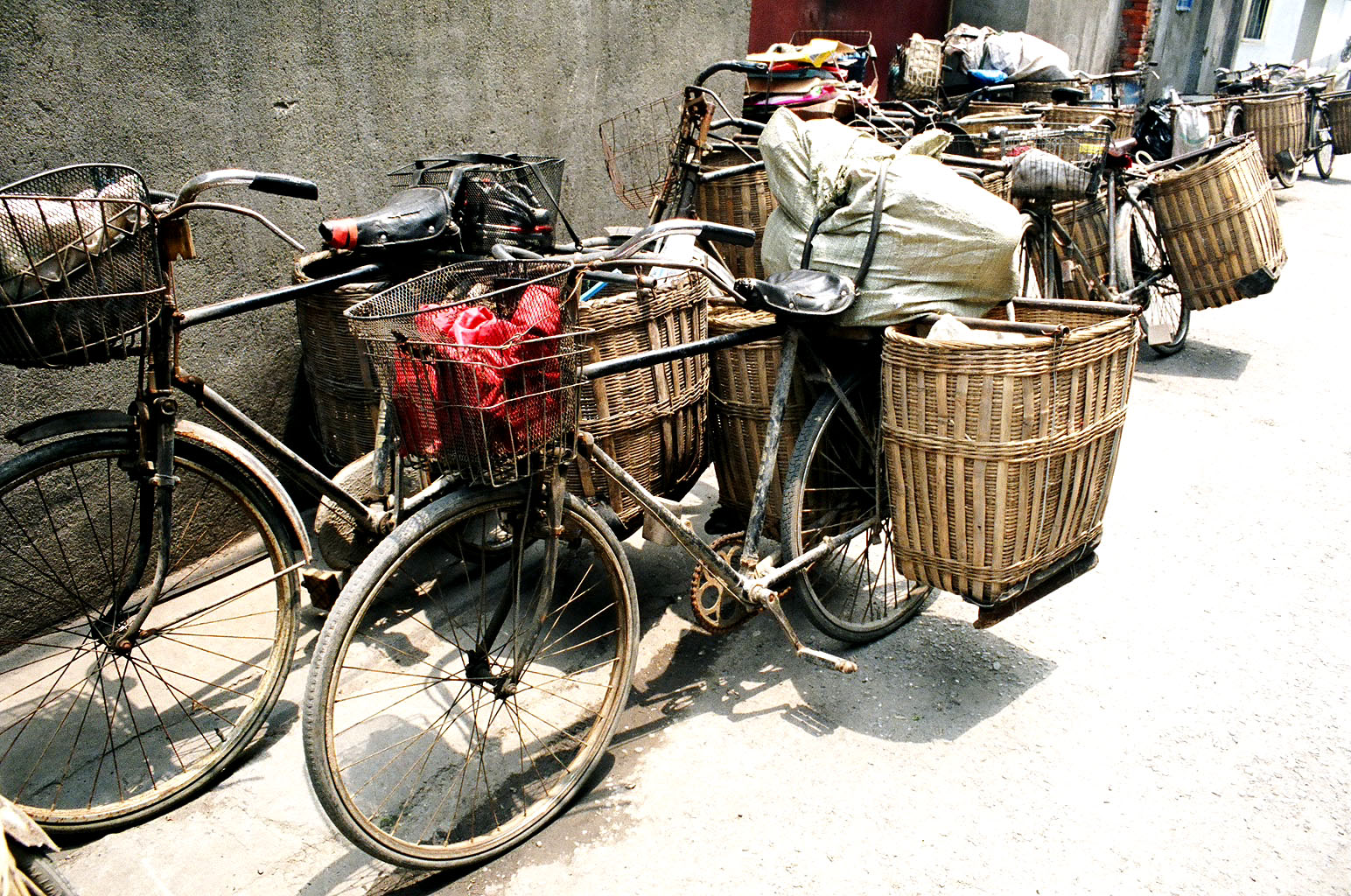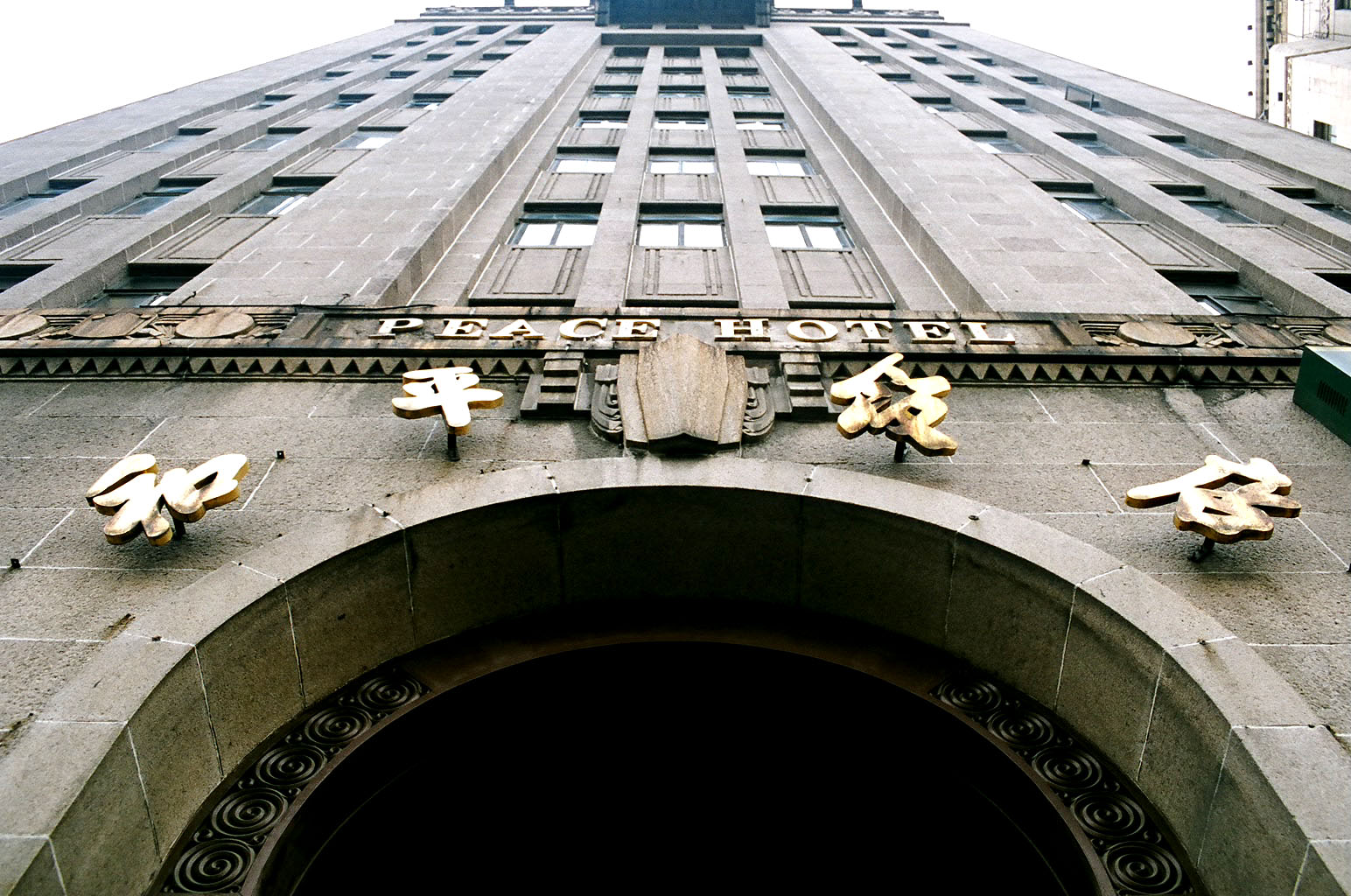|
Huo Guo in
Chengdu, China
When hunger strikes in
Chengdu the intrepid
backpacker sets out to eat as the locals do, huo guo
(hot pot) style.
So along with a few other backpackers I had met
in my hostel I wondered down the small alleys in the
back streets of Chengdu in search of
sustenance. The search took us past old men playing
mahjong on tattered wooden tables, past smoky internet cafes
packed with gamers, and past random machinery shops to a hot pot
place that looked busy. We sat at a round table and the
linoleum floor was damp and sticky with bits of food
scattered about. The concept of a hot pot meal is to
grab a bunch of small sticks of food on skewers and
place them in the pot of boiling water sitting over a
propane flame in the middle of your table. At the end of
the meal the waiter counts the number of sticks in a bin
and charges you by the stick. This sounds easy
enough.
The tricky part is
actually knowing what you are eating, especially if you
lack any semblance of linguistic prowess in Chinese, it
seems no one in Chengdu speaks English much less a
waiter at a local restaurant in a random back
alley.
Inside the open air restaurant literally
hundreds of different items on skewers sit in pans on a
series of shelves. The patrons choose their own skewers
buffet style and then return to the table and toss them
in the boiling pot of spicy water. I would be remiss at
this point if I didn't emphasize how spicy the water
was. There was the vast selection of exotic veggies
and then
there were the more interesting assortments of mystery meats
no doubt
culled from any variety of geographically unconventional
organs of any number of animals
from beef,
chicken, fish, goose, obscure birds, and even dogs I am
told to name just a few. We were left to only conjecture
as to the exact species of origin and body part or organ
we had consumed. Hmm was that one brains, or was it intestines,
ligaments maybe , perhaps it was a tongue? Hmmm... only an ear could
be that hard to chew. This was just the same
really as the oily water they are boiled in imparts a
flavor to the meat so hot that you are
quite literally left sweating and can scarcely taste
what you have just eaten as your tongue numbs from the
fiery spices. We put the skewers in the boiling pot for
a while and assumed after a few minutes they were
cooked, but
who is to say really , does a bird's heart really taste
all that different if it is cooked for 1 minute as
opposed to
5 minutes?
The locals say hot pots are
perfect for hot summer nights and their theory goes its
makes you sweat and the sweat thus cools you down. The abundant
cold "Blue Sword" beer was very cheap and also quite
helpful in the cooling process. The experience was fun
but to this day I am still guessing what I
ate....
A Big City
10.5 million people live
in Chengdu and it is certainly the biggest city I had
never heard
of before I visited, but then again China is chalked
full of these million plus populated metropolises that no one has
ever heard of outside China. I had arrived in
Chengdu, the bustling
capital of Sichuan province,
really as a springboard for onward travels but ended up
spending a few days there. The city was not without its
own merits. For the most part Chengdu is a modern
city with towering apartment blocks, pleasant tree
lined
streets, and grand avenues busy with masses of
people. In the scattered back alleys old men drink tea
in
ramshackle alleyway cafes. Elsewhere in the city busy
discos
blair Eurotunes all night. In the mornings workers line
up outside retail shops on the sidewalks and stand at
military like attention as bosses yell motivational
speeches, a very peculiar site really.
Like any large Chinese
city there is the requisite towering statue of Mao
Zedong stoically gazing
upon the city above a huge bed of flowers. Elsewhere in the
city a visit to the people's park is a pleasant way to
spend an afternoon. Citizens stroll about the shady
greens, assorted monuments, and even a diminutive
amusement park. Families dine in tea houses overlooking
a small lagoon where kids paddle small boats under tiny
bridges.
Wunshu temple offers another pleasant respite
from the rest of the city. Fragrant
incenses burn from large vases in front of Buddha
statues as old men and women perform tai chi exercises
under the shade of the temples ancient trees.
Shanghai
I had arrived in Shanghai on a late evening and
as my taxi zipped toward central Shanghai I gazed out
the window and smiled. Nearing the center the taxi
navigated the
massive tangles of elevated avenues and
highways
diving up and down like an urban roller coaster
of sorts. I
had
always imagined Shanghai to be a place ripe with
excitement and
as the taxi neared central Shanghai with the night
breeze blowing and neon lights reflecting everywhere I
was fairly certain I would not be disappointed. I made
my way to a hostel and then headed to one of Shanghai's jewels, the
Bund.
(continued next
column)
|
 |
| |
 |
|

|
| Shanghai's Pudong area
|

|
| Chengdu: Mao statue (click to
enlarge) |

|
| Chengdu:
bikes |

|
| Shanghai art deco: Peace
Hotel |
Teaming with energy, The
Bund is a 1.5 Km waterfront promenade running along the
Haungpu river. The promenade is set against a backdrop
of massive flood lit colonial era buildings on one side
and the Manhattan like neon
skyline of the Pudong district gleaming on the other
side across the river. Ascending from
the side streets to the elevated promenade the splendor
of Shanghai becomes
readily apparent.
The Bund is buzzing with locals and tourists
alike out
for a nighttime stroll, vendors hawking
post cards and tacky souvenirs, touts handing out
flyers, and kites flying high
basking
bright in the floodlights
against the black sky. Emerging from a set of stairs
going up to the Bund I was greeted by a random fireworks
display lighting up the sky. The fireworks
burst even
brighter than the endless horizon of massive
skyscrapers, towering apartment blocks and myriad neon
billboards across the river. A few other buildings
across the river were transformed into giant jumbotron
TV's, as images moved across the entirety of the massive
glass panels. The river it seemed was just as busy as
its banks with large cargo ships rolling through the low lying
fog with their deep baritone horns bellowing loud,
echoing from bank to bank.
Smaller junk ships, dinner cruise ships, and even boats
with neon advertisements all mingled in
the dark waters.
Situated just below
the Yangtze delta facing the East China Sea, Shanghai is the world's
biggest port. Early in the 20th century the
Bund was the financial hub of East
Asia with its abundant art deco banks,
trading houses, and consulates. One the more interesting
buildings is the famous Palace Hotel, once frequented by
the likes of Noel Coward, George Bernard Shaw, Charlie
Chaplin, and others. Pudong across the river is one of
the world's largest construction sites with new
skyscrapers sprouting like mushrooms all the time.
Elsewhere in Shanghai there are the
trendy clubs, boutiques, and discos of the French
Concession Area. At some point I wondered into one
outdoor market replete with bootleg software,
dvd's, and
fake designer clothing where a large red banner leading
to the market read "respect intellectual property". The
humor was not lost on me as I took home a cheap copy of
the latest version of Photoshop CS. Shanghai is also
home to the world's largest Magnetic Levitation Train
the so called "Maglev". Magnets along the track's
entirety
keep the large trains slightly
elevated above the tract, thus completely
eliminating
friction and allowing the train to reach speeds
of 270 miles per hour. I took this train back to the
airport, at this warp like speed the landscapes seem to
blur and at one point where the track ran parallel
to a large
freeway the cars looked like they were standing still
relative to the train.
Well my second trip to
China and
still really just scratched the surface, one day
I'll return....
|
 |
| |